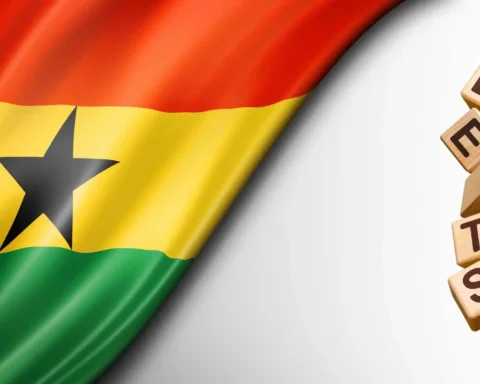Music in black culture, an enchanting and profoundly influential facet of the African diaspora, resonates as a vibrant tapestry of rhythm and melody that has left an indelible mark on the world's musical heritage.
In this exploration, we will navigate the depths of music's integral role in black culture, uncovering the deep-rooted traditions, artistic innovations, and social commentary that make it a captivating and enduring force throughout history.
Table of Contents
Roots of Music in Black Culture
The roots of music in black culture run deep, as black artists and musicians have played a pivotal role in shaping the landscape of popular music, captivating both black and white audiences. From blues and jazz to gospel and hip-hop, black music has been an enduring force that transcends racial boundaries, expressing the joys, struggles, and aspirations of black people while resonating with a global audience. Black musicians have not only enriched the tapestry of popular music but have also broken down racial barriers, influencing and inspiring generations of listeners, regardless of their background. In a world where music knows no colour, the roots of black music continue to flourish, fostering unity, understanding, and the celebration of shared experiences.
Spirituals and the Journey to Freedom
"Spirituals and the Journey to Freedom" illuminates the profound impact of black artists, musicians, and their music on American culture. Emerging from the heart of black communities, spirituals represent a quintessential musical tradition, reflecting the resilience and faith of black people during times of oppression and hardship. These powerful melodies and heartfelt lyrics, often performed in religious contexts, became a source of strength and hope, transcending racial boundaries to touch the hearts of both black and white audiences.
The influence of spirituals within the music industry is immeasurable, as they laid the foundation for a myriad of musical genres that followed, from gospel and blues to jazz and R&B. Black artists, with their unmatched vocal prowess and emotional depth, contributed significantly to the evolution of American music. Their innovative approach to vocal techniques and harmonies expanded the possibilities of sound and expression.
Despite the challenges of racial discrimination and segregation, black musicians persevered, and their contributions transformed the American cultural landscape. Spirituals, with their rich history and deep connection to black culture, not only provided a source of comfort and inspiration for black communities but also fostered a sense of unity among diverse audiences.
The legacy of spirituals endures as a testament to the enduring spirit and resilience of black people in the face of adversity. They serve as a poignant reminder of the power of music to transcend social divides, inspire change, and leave an indelible mark on the American cultural landscape.
Jazz - A Cultural Revolution
Jazz embodies the profound impact of black music on American society and its evolution as a groundbreaking genre in the 20th century. Originating in the late 19th century, jazz was deeply rooted in black influence, stemming from a fusion of African rhythms and European harmonies. This unique blend, often referred to as "race music" during its early years, rapidly captivated black audiences.
In the 20th century, jazz experienced a transformative journey spearheaded by black artists like Chuck Berry. Their innovations in rhythm, improvisation, and instrumental techniques gave birth to the diverse subgenres that define modern music. Jazz not only shattered musical conventions but also acted as a catalyst for societal change.
Record companies recognized the genre's appeal and began recording jazz musicians, further popularizing it among diverse audiences. Jazz became symbolic of the cultural revolution, expressing the artistic, social, and political shifts of the time.
The influence of jazz extended beyond the genre itself, giving rise to new musical forms like house music. Jazz's legacy continues to serve as an inspiration for modern musicians and a reflection of the rich diversity within American society. It remains a testament to the enduring power of black music, making jazz a cornerstone of musical history and cultural revolution.
Blues - Expressing the Human Condition
Blues embodies the compelling journey of African-American musicians in the music industry, particularly in the genre of blues. From its roots in the deep South to its global influence, the blues became a powerful means of expressing the complex and universal aspects of the human condition.
Influential figures like Chuck Berry and James Brown took the blues and infused it with a unique energy, laying the groundwork for rock and roll and modern R&B. Their innovations resonated far and wide, captivating audiences of all backgrounds.
Pioneers such as Sister Rosetta Tharpe defied gender and racial barriers, using the blues as a vehicle for spiritual expression. Her contributions paved the way for future female artists, including Whitney Houston, to shine in the music industry.
It's important to note that the blues wasn't confined to African-American musicians alone. Artists like Elvis Presley acknowledged their debt to black blues musicians, reflecting the genre's transformative power and cultural impact.
The blues has remained a genre that authentically captures the human experience, transcending racial and cultural boundaries. It serves as a timeless testament to the resilience, creativity, and emotional depth of those who express the human condition through the power of music.
Gospel - The Sound of Faith and Resilience
Gospel is a musical genre that has transcended religious boundaries to become a universal expression of faith and resilience.
Rooted in the spiritual heart of Black churches, gospel music has been an enduring testament to the strength and devotion of the African-American community. Gospel music, often characterized by its emotive and soul-stirring performances, has provided a platform for black performers like Aretha Franklin and Sister Rosetta Tharpe to share their exceptional vocal talents while spreading messages of hope and faith.
However, gospel music has not been confined to the walls of black churches alone. White musicians and performers, inspired by the fervour and power of gospel, have embraced this genre, contributing to its diversity and universal appeal. James Brown, known as the "Godfather of Soul," blended gospel with R&B, while Stevie Wonder incorporated gospel influences into his music.
Time and again, the genre has proven its ability to unite people, regardless of their backgrounds. Gospel music serves as a bridge that connects hearts and minds, fostering a sense of faith and resilience that transcends boundaries and unites communities in a shared celebration of the human spirit. The legacy of the gospel is a testament to the enduring power of music to inspire and uplift, offering solace and strength in times of adversity.
Rhythm and Blues - The Birth of Modern Soul
The roots of modern soul music can be traced back to a rich tapestry of American music, with influences from various genres and iconic figures. One of the most influential genres in this evolution is Rhythm and Blues (R&B). R&B emerged as a dynamic and transformative force in the mid-20th century, and it played a pivotal role in shaping the contemporary music landscape.
Rhythm and Blues has deep roots in the African-American musical tradition, drawing from gospel, jazz, and the blues. Bessie Smith, a renowned blues singer of the early 20th century, contributed significantly to the development of R&B. Her powerful, expressive voice and poignant lyrics set the stage for the emotional depth that would become a hallmark of the genre.
Aretha Franklin, often referred to as the "Queen of Soul," stands as an iconic figure in the R&B and soul music pantheon. Her gospel-inspired vocal prowess and ability to convey intense emotions made her a symbol of the R&B movement and laid the foundation for modern soul music.
Rap music, a genre that emerged in the late 20th century, also drew inspiration from R&B. Rap music, characterized by its rhythmic and lyrical intensity, often samples R&B tracks. This fusion of genres brought a fresh perspective to R&B and expanded its influence, resulting in a dynamic and ever-evolving musical landscape.
Country music, a genre typically associated with white performers, also played a role in the development of modern soul. The blending of country and R&B elements by artists like Ray Charles, with his groundbreaking album "Modern Sounds in Country and Western Music," showcased the interconnectedness of American music genres. Charles' innovative approach bridged the gap between R&B and country, demonstrating the power of cross-genre collaboration.
Stevie Wonder, a prodigious talent and a prominent figure in the R&B and soul world, used his innovative musicality and soulful compositions to push the boundaries of the genre. His experiments with various instruments, electronic sounds, and intricate arrangements not only solidified his status as a musical genius but also contributed to the modernization of soul music.
Dance music also played a significant role in the evolution of the modern soul. The fusion of R&B and dance elements gave birth to a genre known as "disco soul." Artists like Diana Ross and the Bee Gees, often associated with disco, incorporated R&B influences into their music, creating infectious grooves and memorable dance hits.
Hip-Hop - A Cultural Revolution
The emergence of hip-hop music marked a cultural revolution that transcended boundaries and redefined the musical landscape, drawing influence from various genres, including country, pop music, and the legendary figures of Michael Jackson, James Brown, and Elvis Presley.
Hip-hop's roots can be traced to the vibrant streets of the Bronx, New York, in the 1970s. This genre of music and its associated culture quickly became a powerful tool for self-expression, often drawing inspiration from the struggles of urban life. Hip-hop's evolution, however, would soon encompass a diverse range of influences.
Country music, traditionally a genre associated with rural and Southern America, may seem far removed from the urban streets that birthed hip-hop. Nevertheless, hip-hop artists like Lil Nas X and Nelly seamlessly blended elements of country into their music, demonstrating the genre's adaptability and ability to bridge geographical and cultural gaps.
Pop music also played a pivotal role in the development of hip-hop. Michael Jackson, often referred to as the "King of Pop," was a recurring influence on the genre. His groundbreaking album "Thriller" not only set new standards for pop music but also impacted the emerging hip-hop scene. Songs like "Billie Jean" and "Beat It" featured elements of funk and R&B, which resonated strongly with hip-hop artists, leading to incorporating these sounds into the genre.
James Brown, known as the "Godfather of Soul," was another crucial influence on hip-hop. His innovative rhythms and energetic stage presence were sampled by numerous hip-hop artists, giving rise to the era of "breakbeat" and contributing to the genre's signature sound.
Elvis Presley, the "King of Rock and Roll," also significantly impacted hip-hop. His ability to fuse various music genres, from rock and roll to rhythm and blues, resonated with hip-hop's tendency to blend diverse influences. Elvis's impact on American music culture echoed throughout hip-hop's evolution.
Now, let's revisit Michael Jackson's influence on hip-hop. His music and dance moves, such as the iconic moonwalk, were celebrated in the pop world and embraced by the hip-hop community. Many hip-hop artists, including the likes of Run-D.M.C. and MC Hammer, incorporated Jackson's signature dance moves into their performances, adding an exciting visual dimension to the genre.
In conclusion, hip-hop represents a cultural revolution that was not confined to the boundaries of a single genre or era. It drew inspiration from country, pop music, and the influential legacies of Michael Jackson, James Brown, and Elvis Presley. Hip-hop's capacity for innovation and its ability to adapt to an ever-changing musical landscape are testaments to its enduring power as a genre and cultural movement.
Reggae - A Global Voice of Resistance
Reggae music, with its roots firmly planted in Jamaica, has emerged as a global voice of resistance, a genre that transcends borders and resonates with listeners worldwide. Black performers have deeply influenced it and draw inspiration from various musical pioneers, such as Bessie Smith and Bob Cole, and the cultural influence of artists like Public Enemy, Ornette Coleman, Tina Turner, Miles Davis, Queen Latifah, and Sam Cooke.
Bessie Smith, a legendary black performer, was a seminal figure in the world of blues music. Her dynamic and powerful vocals set the stage for the passionate and soulful expressions that would become a hallmark of reggae. Her influence on the genre, especially regarding vocal delivery and storytelling, cannot be overstated.
The influence of Bob Cole, a pioneering African-American composer and performer, cannot be ignored. His work in the early 20th century played a crucial role in developing African-American musical traditions. Reggae music carries echoes of his contributions, particularly in its use of rich harmonies and diverse musical elements.
Reggae's engagement with social and political issues is a defining characteristic, and the genre has often served as a platform for resistance against injustice and oppression. The socially conscious music of Public Enemy in the world of hip-hop and the avant-garde jazz of Ornette Coleman both impacted reggae, emphasizing the power of music as a tool for change and social commentary.
Tina Turner, known for her electrifying performances, also made her mark on reggae music. Her dynamic stage presence and powerful vocals profoundly impacted reggae artists, who often seek to connect with their audiences through passionate and emotive live shows.
Miles Davis, the legendary jazz trumpeter and bandleader, brought an innovative spirit to his music. While not a reggae artist himself, his boundary-pushing approach to music composition and improvisation has influenced reggae musicians who share a similar spirit of experimentation and exploration.
Queen Latifah, a multifaceted artist and rapper, has also contributed to reggae's evolution by inspiring artists to push boundaries and embrace their own unique styles. Her empowerment anthems and diverse musical talents align with the ethos of reggae, which often champions individuality and self-expression.
Finally, Sam Cooke's soulful voice and timeless hits have provided a rich source of inspiration for reggae artists. His ability to convey deep emotions and thought-provoking lyrics laid the foundation for reggae's role as a genre that communicates hope, unity, and resistance.
In summary, reggae is more than just a genre of music; it is a global voice of resistance that draws from a diverse array of black performers and musical pioneers. Through the legacies of Bessie Smith, Bob Cole, Public Enemy, Ornette Coleman, Tina Turner, Miles Davis, Queen Latifah, and Sam Cooke, reggae carries a torch for social justice, self-expression, and the enduring power of music to shape the world.
Conclusion
The exploration of music in black culture is a journey through a rich tapestry of creativity, resilience, and influence. From the roots of spirituals to the revolutions of jazz, blues, and gospel, black music has not only shaped the cultural landscape but has also acted as a powerful vehicle for expressing the complex human condition. It has transcended racial, cultural, and geographical boundaries, resonating with audiences worldwide. The legacy of black music serves as a testament to the enduring power of artistic expression, illustrating the unifying and transformative force that music wields in illuminating the heart and soul of people and their culture.
FAQs
What music is black culture?
Music in black culture is a diverse and influential spectrum of genres, including gospel, jazz, blues, R&B, hip-hop, reggae, and more, which have played a pivotal role in shaping cultural identities, promoting social change, and inspiring people around the world.
What music is influenced by black culture?
Many music genres, including jazz, rock and roll, hip-hop, and reggae, have been significantly influenced by black culture, shaping their sound, style, and cultural impact.
Who was the first black music artist?
The question of the first black music artist is complex and spans various genres, but artists like Scott Joplin (ragtime), W.C. Handy (blues), and Thomas A. Dorsey (gospel) were among the early influential black musicians in the late 19th and early 20th centuries.
How does music represent black culture?
Music represents black culture by serving as a powerful medium for expressing the historical, social, and emotional experiences of Black communities, promoting resilience, unity, and social change.











[…] when coming into contact. For example, in Asian countries, when communicating with elders, it's a culture to bow your head or join your hands while greeting elders to show respect. On the other hand, a […]
[…] about being related to straight, white males. The general mission was to emphasize alternative music as a genre motivated by different influences, rising above lines of language, beat, and […]
[…] Indian music carry a message that connects people across the country. We all know that the taste in music changes from generation to generation hence we will look into the music of all generations and […]